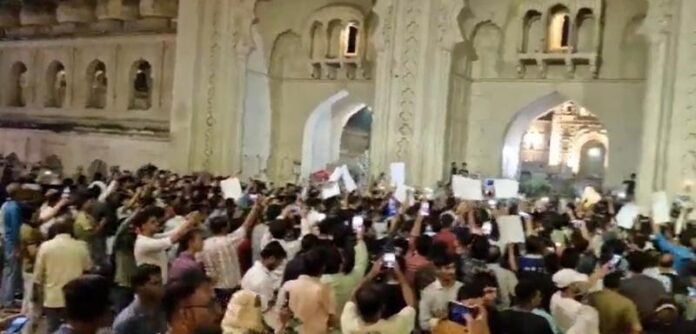Israel’s assassination of Hassan Nasrallah has struck a serious blow to Hezbollah, potentially weakening the group’s morale or fueling its members’ anger. For Prime Minister Benjamin Netanyahu, this could be a pivotal moment, either diminishing Hezbollah’s power or sparking greater retaliation. History shows that when a leader with strong influence is removed, organizations like Hezbollah often struggle to regain the same strength under new leadership.
Hezbollah, with its political and militant arms, is classified as a terrorist group by countries such as the US, EU, Saudi Arabia, Bahrain, and the Arab League. However, Nasrallah’s death has sparked mixed reactions worldwide, including in India.
Some responses, particularly from certain Indian Muslim groups, have been concerning. For example, a prayer and condolence event at the India Islamic Culture Centre in Delhi paid tribute to Nasrallah and other Hezbollah figures. Shia organizations also held protest rallies, showing solidarity with Hezbollah.
This display of support highlights a troubling trend where some Muslim leaders prioritize religious unity over national interests, failing to consider the complexity of the situation or the internal security challenges India faces. By focusing on Hezbollah’s anti-Israel stance, they inadvertently align with extremism, which harms both the Muslim community and the country.
Prominent voices, especially those from the Pasmanda Muslim community, should focus on addressing real issues affecting Indian Muslims rather than engaging in sentimental politics. India’s hesitation to label Hezbollah as a terrorist group adds complexity to this debate, yet there is no hesitation in criticizing Israel. This selective outrage, particularly regarding human rights, raises questions about the sincerity of such arguments.
The India Islamic Culture Centre, led by Ashraaf elites, has been criticized for not addressing broader human rights issues within India. Pasmanda leaders have rightly questioned the center’s relevance, even suggesting it could better serve as a hospital given its limited role in benefiting Indian Muslims.
The Pasmanda Muslim Mahaz, while supporting the government’s stance on Israel-Palestine, has remained silent on Hezbollah, reflecting a broader issue within the Indian Muslim community. The community’s support for Nasrallah or indifference to his death paints a negative image, further alienating them from other groups in India.
Ultimately, community leaders need to shift their focus from glorifying extremist figures to promoting the welfare and progress of Indian Muslims, emphasizing national unity and positive role models.

